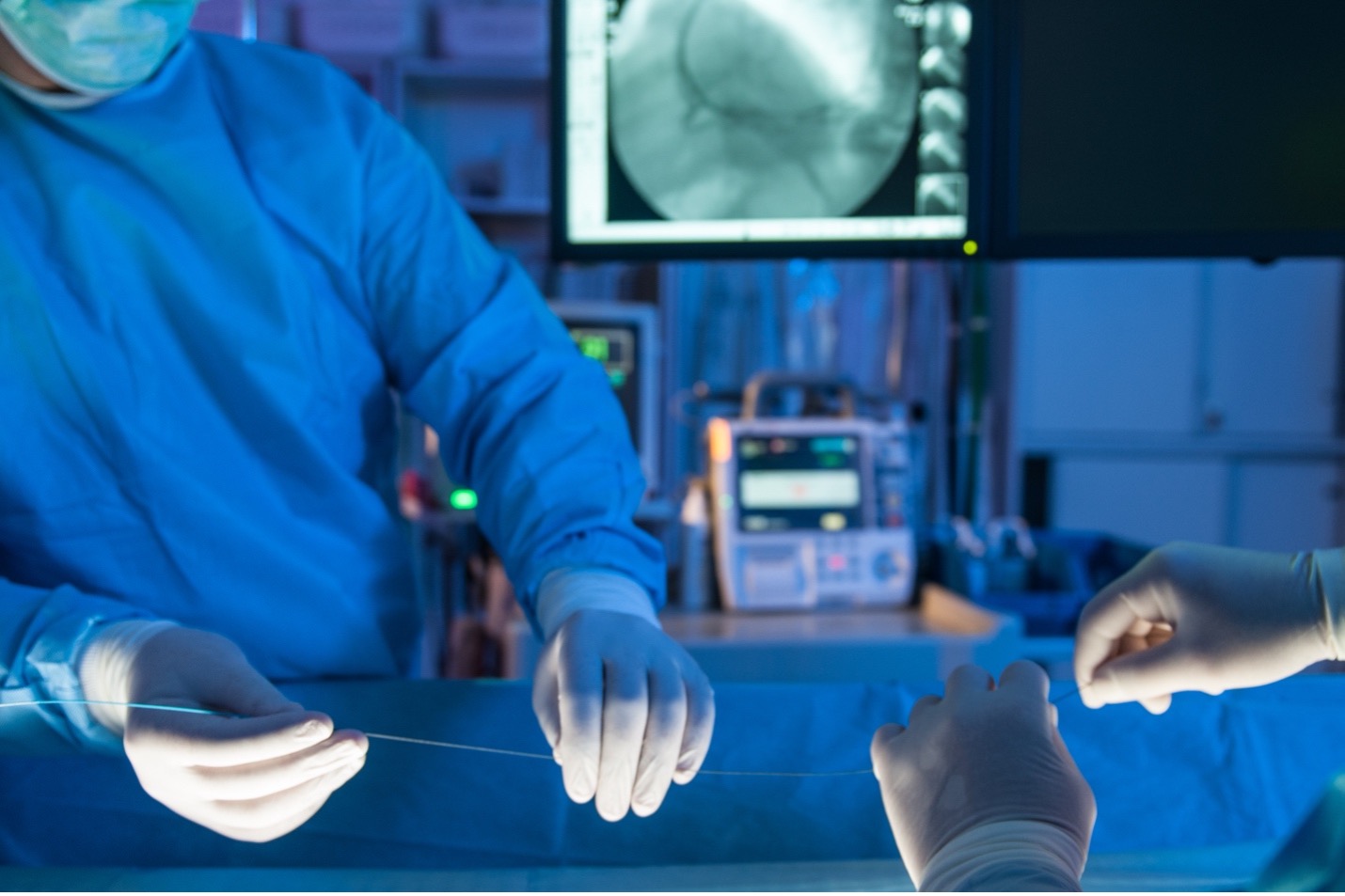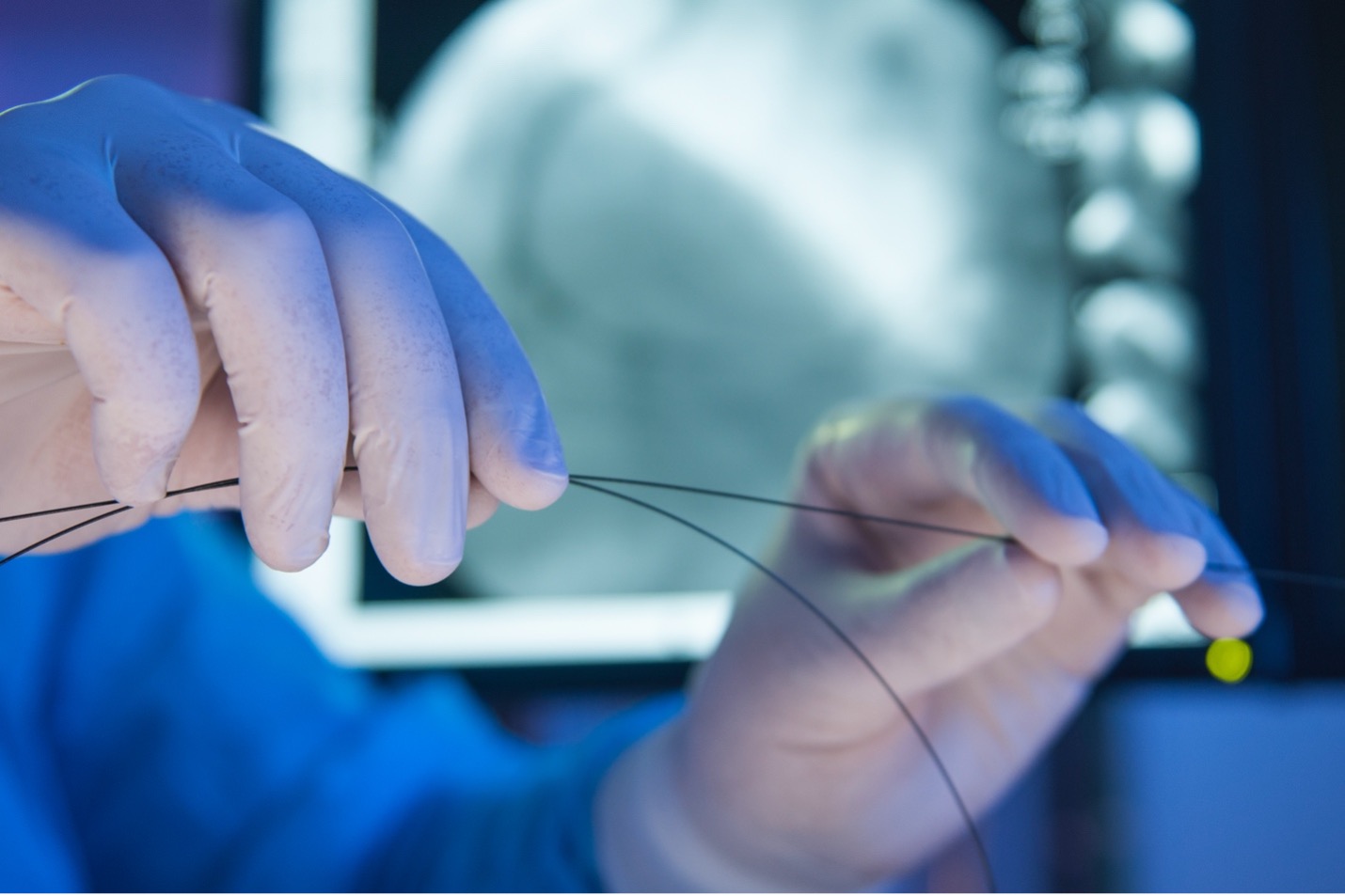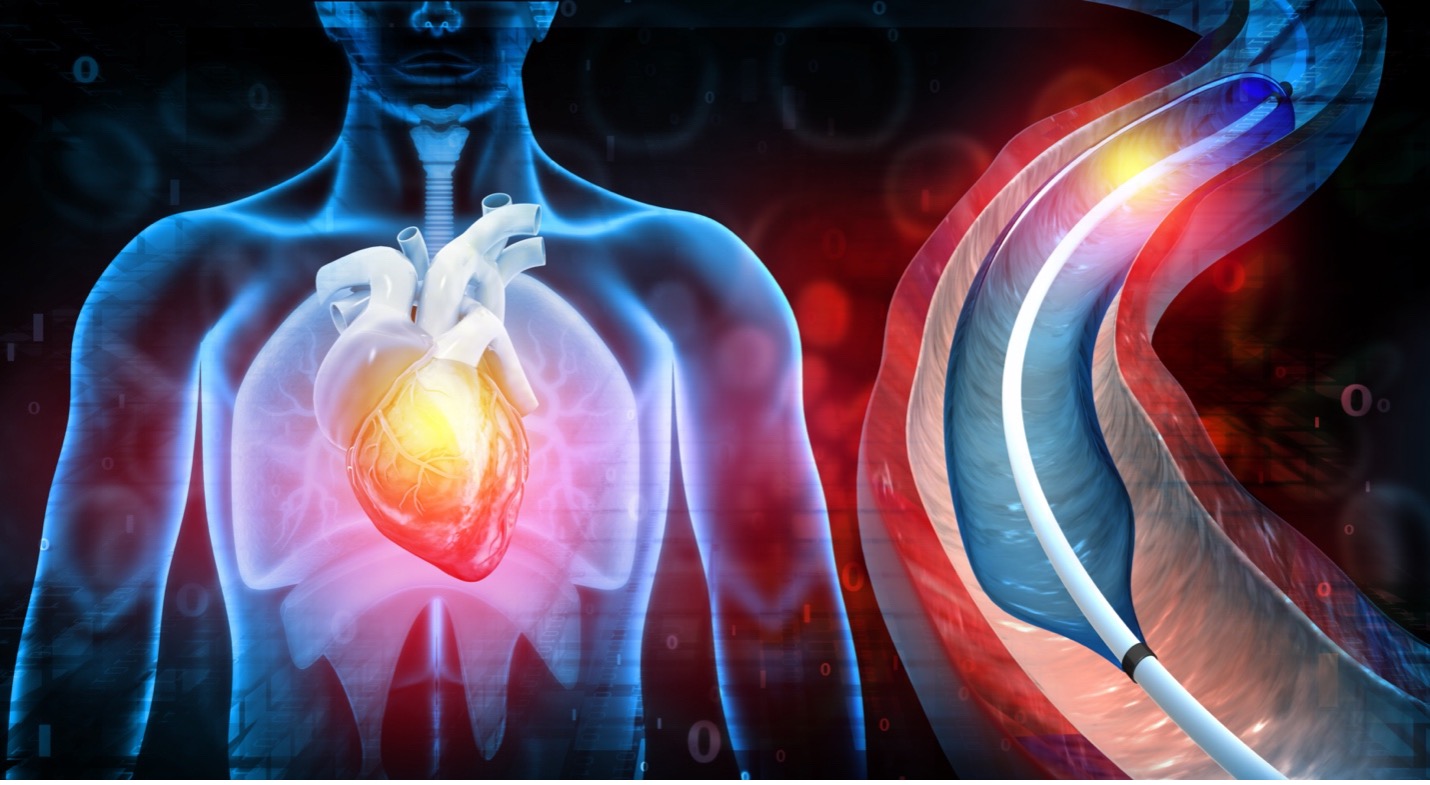The Role of an Interventional Cardiologist


Consulting Cardiologists is proud to have two interventional cardiologists on our team – Dr. William Farrell and Dr. Zain Ahmed (who will join us at the end of August). Interventional cardiologists specialize in minimally invasive, but nonsurgical, procedures for treating myocardial infarction (also known as heart attacks), coronary artery disease, valve disease, peripheral vascular disease including blockages of the blood vessels of the legs, and carotid artery disease caused by blockages in the large vessels supplying blood flow to the brain.
Below is an overview of the role of an interventional cardiologist and some common questions.
What is interventional cardiology?
Interventional cardiology is a subspecialty of cardiology that uses specialized catheter-based techniques to diagnose and treat heart attacks, coronary artery disease, vascular disease, structural heart disease, and congenital heart defects. Interventional cardiologists use various diagnostic tools and imaging techniques to measure cardiovascular functions including blood flow in major arteries of the heart and associated blood vessels, and pressures within the different chambers of the heart. Interventional cardiologists do not perform traditional “open heart” surgeries. Their procedures are performed in the cardiac catheterization laboratory, often referred to as the “cath lab.”
What is the difference between an interventional cardiologist and a general cardiologist?
The major difference is that interventional cardiologists are trained to perform specific catheter-based procedures and interventions for heart disease, whereas general cardiologists are not specifically trained in performing those interventions.
What procedures does an interventional cardiologist perform?
Interventionalists perform a wide range of procedures for cardiovascular diseases and conditions that affect the heart and surrounding blood vessels. These include:
- Coronary Angiograms and/or Cardiac Catheterization including Left Heart and/or Right Heart Catheterizations
- Percutaneous Coronary Intervention (PCI)
- Balloon Angioplasty
- Stent Implantation
- Atherectomy
- Intravascular Ultrasound (IVUS) and Optical Coherence Tomography (OCT) imaging
- Hemodynamic Assessment of Blockages in Blood Vessels Using Pressure Wires
- Pulmonary Artery Pressure Monitoring Device Implantation
- Peripheral Angiograms (including lower extremity arterial and venous angiograms, renal or carotid angiograms)
- Emergency and Rescue Procedures in the hospital for patients coming in with heart attacks and/or cardiogenic shock: Emergency cardiac catheterizations, pericardiocentesis and/or insertion of mechanical heart pumps such as intra-aortic balloon pumps or Impella

What are the most common procedures performed by an interventional cardiologist?
The most common procedure is a cardiac catheterization, which involves the insertion of a sheath into the wrist artery or groin and passing a catheter to the heart to take X-ray images of the coronary arteries using contrast dye and/or check pressures inside the heart. If there are blockages in the coronary artery that can and need to be fixed, the blockages are opened with a balloon (angioplasty) and/or a stent (metal sleeve that is inserted to prop open the artery from within). These procedures are done on an elective basis in the cath lab or more emergently if patient is actively coming into the hospital with a heart attack.
Do interventional cardiologists do surgery?
No. They perform minimally invasive procedures in the cath lab in a hospital setting. If you need coronary artery bypass grafting, surgery on your aorta or a valve replacement, a heart transplant, or a repair that cannot be done through a catheter, you will be referred to a cardiac surgeon.
How is training different for an interventional cardiologist?
All cardiologists complete four years of medical school, followed by three years of residency in internal medicine before serving three or four years in a cardiology fellowship. One or two years of additional training may follow if they choose a cardiac subspecialty such as interventional cardiology (specialists in fixing blockages of the heart and surrounding blood vessels), electrophysiology (specialists in treating heart rhythm issues), heart failure (specialists in treating patients with advanced stages of heart failure and/or patients who have or need heart transplants), or advanced imaging (specialists in imaging of the heart such as echocardiography, nuclear cardiology, and/or cardiac CT/MRI).
Do interventional cardiologists provide general cardiology care?
Yes. All our cardiologists see patients in the office to diagnose, confirm, and manage heart disease. They perform patient exams, order or conduct diagnostic testing, identify risk factors, and develop ongoing treatment and disease-management plans. When additional measures are needed, they coordinate referrals.
How to do a schedule an appointment?
Call our office at (860) 522-0604 and we will get you scheduled. We are welcoming new patients and have offices in 10 convenient locations.